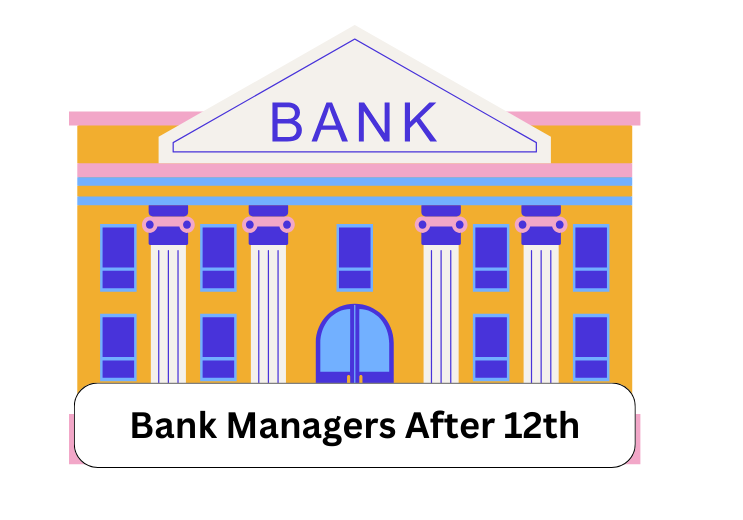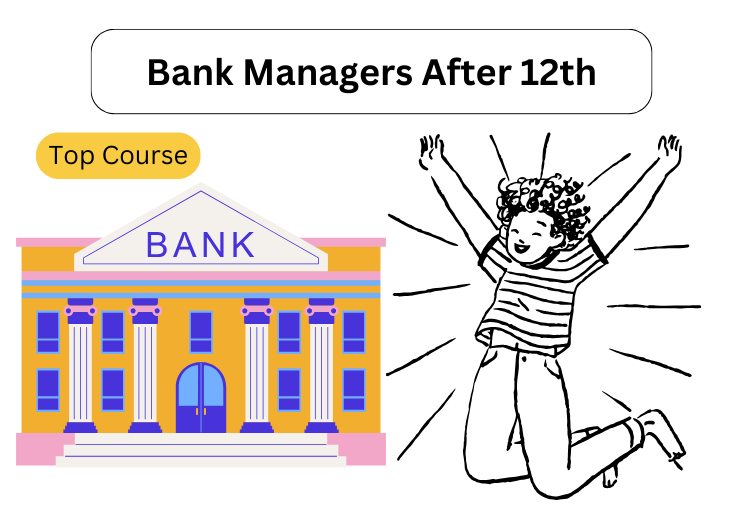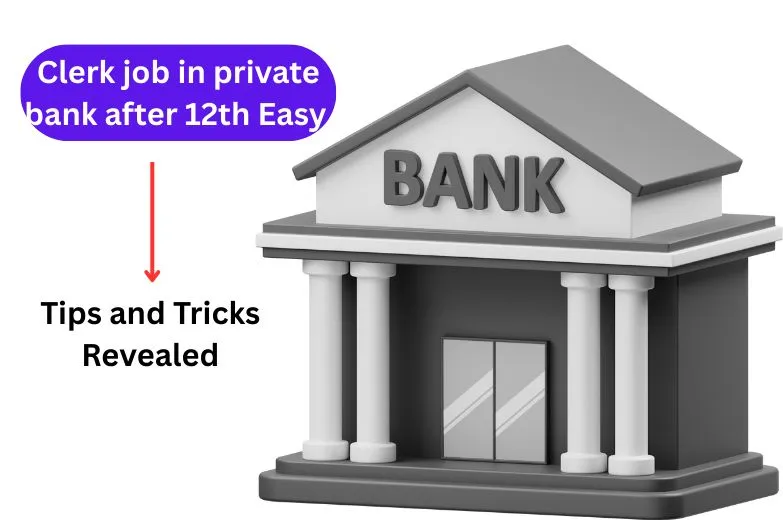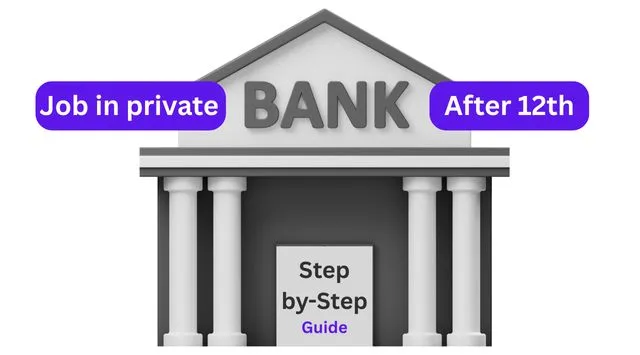So, do you want to be a bank manager after 12th? That’s great! Banking is an area that is stable, gives good salary and there are lots of possibilities of development. But it needs the right course and plan for this I’ll guide you like an older brother, with practical tips and real examples Ready Let’s start.
Table of Contents
Why Banking? And what is the roll of bank manager?
Bank Manager Banna is not a small thing A bank manager handles all operations of the branch talk to customers, accept loans lead the team, and achieve the bank’s goal These need communication, leadership and financial knowledge at work. And yes opportunities are increasing even more due to digital banking and fintech in the banking sector in 2025. So, jumping into the field right now is a smart move.
What to do after 12th?
There is no shortcut after Direct 12th to become a bank manager You need a degree first, But don’t take tension I tell you step-by-step.
1. Choose Commerce Stream (will run if not)
If you’re in 10th, take a Commerce Stream at 11th is Best because it offers Accounts, Economics, and Business Studies that create a foundation for banking But if you are of science or art, there is no problem just need more than 50% marks in 12th.
2. Bachelor’s Degree
Minimum one graduate degree is required for the bank manager, This is a 3-4 year course The best options here.
This is a 3-year course that teaches banking operations, accounting, and financial law One of my cousin did B.com from Christ University and now is an Assistant Manager in SBI.
It is also 3 years old and gives management skills as well as banking knowledge. If you like figures and analysis, these courses will help you understand the financial market.
Qualification: 50% marks from any stream in 12th Entrance tests of some colleges are also sought such as CUET or IPU CET.
3. Diploma/Certification Course (Optional)
If you want to enter a job quickly, after 12th a 1-2 year diploma course can also try to perform a diploma in banking and finance. These are practical skills and entry-level jobs that are assistant. ICICI Bank’s Post Graduate Diploma in Banking is very famous including internships and placements.

Reed: Railway Jobs For Female, 12th Pass
Crack the competitive exam
Brother, public sector banks (such as SBI, PNB) are required to test to become my manager. Private banks also have exams but there is more focus on degrees and skills there Top Exams here.
- This happens after the exam degree. You can become PO after clearing, and after 2-3 years of experience, Promotion can become a manager.
- There is different exam for SBI, which is a little bit of hair, but salary and growth is very good.
- RBI Grade B This is a high level exam, which directly gives officer level jobs.
In the exam you have quantitative qualification, rationale English and current affairs preparation prepare from the time of graduation. Online coaching or apps such as Adda247 or Testbook can be used. A friend of my own took 2 years and practiced IBPS PO cracked and is now the branch manager.
Skills That Need
Skill is also necessary with the degree to become a bank manager Look what you need.
Communication Skills: Customers and Team Want to Speak Obviously, Leadership Managing the team and achieving the goal. Problem-SolutionTo resolve daily operational issues. Financial knowledge loan, investment and risk management understanding. Understanding of Technology Digital Banking is very large in 2025, then banking software and CRM tools should have basic knowledge.
I had a senior who started with cashier in the bank after B.COM She became Assistant Manager in 5 years with her communication and leadership skills So, it’s very important to polish skills.
What to do for an extra boost?
Do internships Try internships in banks or financial institutions at the time of college. It gives practical experience and ads weight in CV.
MBA in Finance/Banking If you want to read more after the degree MBA can. This prepares you for direct senior roll Top Colleges IIM NMIMS Symbiosis.
Certificate Courses such as CFA (Chartered Financial Analyst) or FRM (Financial Risk Manager) will give you special knowledge These are very values in private banks.
Networking Join the banking program, seminar or LinkedIn Pay industry professional This helps a lot for job opportunity.
How long it will take?
It usually takes 6-8 years to become a bank manager.
3-4 years a bachelor’s degree.
1-2 years exam preparation and entry-level job.
2-3 years for experience and promotion.
If you do an MBA, there will be 2 years more adds but promotion will get quickly.
Salary and growth
The initial salary of a bank manager is approximately ₹6-10 lakh per year (in public banks). Private banks may be a bit higher (₹8-14 lakh) Salary with experience can also go up to ₹20 lakh. Also, government banks also get pension like job security and benefit.
Practical Tips That Will Come In Handy
Create timetables for studies and exam preparation from college. Stay Updates Read Banking News, RBI’s Policies and Financial Technology Trends Use apps like Money Control or Economic Times. Mock Test Do regular Mock Test for competitive exams.
Soft Skills Join Public Speaking or Group Discussion then confidence will increase, Try Local Banks Try internships or jobs in small finance banks or cooperative banks for beginners experience.
Small talk
Brother, banking needs patience and hard work A friend of my B.com did B.com after 12th, IBPS PO Clear, and now became Branch Manager in 5 years. He said just regular studies and a little hard work made me even. So, if you are continuous too then you will definitely be the bank manager.




